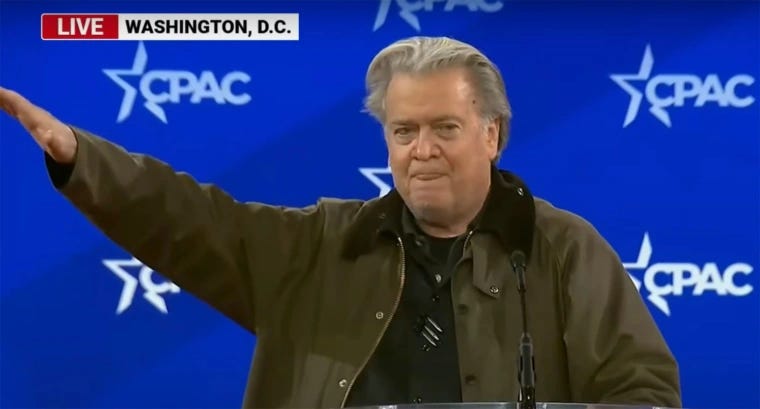I was going to take today off but I was pulled over by a big livestock guardian dog named Leon Trotsky who demanded that I turn over any undocumented cats. In that moment I had a vision of driving in Eastern Ontario, encountering road blocks established by occupying forces, searching for dissidents and undocumented immigrants (which if you think about it, includes all of us).
Meanwhile I’ve got this Dylan song stuck in my head.
You hand in your ticket and you go watch the geek
Who immediately walks up to you when he hears you speak
And says, "How does it feel to be such a freak?"
And you say, "Impossible!" as he hands you a bone
And something is happening here but you don't know what it is
Do you, Mr. Jones?
Canadians are grossly underestimating the existential threat we now face.
This isn't a distraction, nor a bluff.
It's not just tariffs, nor an economic war.
It is a complete redrawing of borders, inside of government and across the world.
A transformation and automation of the administrative state.
A rapid acceleration of politics as we know it.
At its core it is a media war, that shifts perception and attacks culture.
Canada is not only incredibly vulnerable, we can't even grasp what is happening, even though we all feel it in our hearts and soul.
Trying to buy Canadian when we shop at Walmart/Costco will not stop this.
Nothing is inevitable provided we are willing to pay attention, but something is happening, and you don't know what it is, do you, Mr. Jones? 😎
In future issues we’ll elaborate on the characteristics, goals, and impact of this media war, but we’ve also been writing about this consistently as part of our focus on authority and its future.
The point however in drawing your attention to the media war is that it is not won or lost, or for that matter even fought in the way that people recognize. The content of a hockey game is less important than the message that is the media itself. Marshall McLuhan recognized the inclusive and immersive impact of media, and what we keep forgetting is that our media, and in particular our media narratives, are incredibly and infectiously American.
While we debate or even reject the idea of being the 51st state, it steadily and deeply creates an emotional home in our mind (living there rent free no doubt). This is how they roll, right over our conscious mind, engaging our collective mind, in a manner we might recognize but fail to stop.
Of course it can be stopped, but not by doing what we’re currently doing. And certainly not by placing our hopes in the hands of a Central Banker who thinks that DOGE ain’t that bad.
Oh and did you see what Bannon did at CPAC?
Good news the resistance is rising and the people are organizing. There were protests in the streets in almost every major American city this week. And a growing awareness of what’s at stake. Well, in the US at least.

 Tiktok failed to load.
Tiktok failed to load.Enable 3rd party cookies or use another browser






1. I was raised on Bob Dylan and that song always stood out to me and later, it was the part you quoted that was what alerted me to "Dylan wants me to infer something deeper than the face value of these words." (so thank you).
2. I saw FOUR protests Saturday, here in Phoenix, AZ, a truly purple 6th-biggest-metropolis (and growing) here in the USA (always look for positives. This truly is one).
3. I'm so glad you gave us an extra post. This was TOTALLY worth it.
Keep reminding us, Jesse! Another Dylan, Dylan Thomas, wrote that we should not go gently into the good night. He was writing about death and you I believe are warning of the death of Canada. His poem continues, “Rage, rage against the dying of the light”. This is what we m